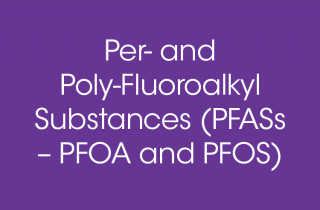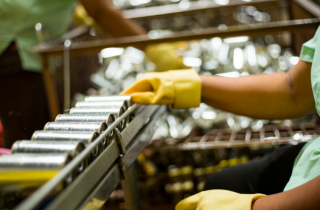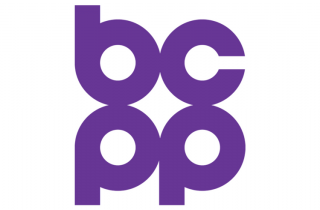California Safer Food Packaging and Cookware Act (AB 1200)
At a Glance
The BCPP cosponsored California Safer Food Packaging & Cookware Act of 2021 (AB 1200 – Ting), was signed into law by Governor Gavin Newsom October 5, 2021.
The bill:
- Bans paper-based food packaging containing PFAS chemicals
- Requires cookware manufacturers to disclose the presence of hazardous chemicals
- Prohibits misleading advertising on cookware packaging
Status: Passed the Assembly on 4/22/2021. Passed the Senate Health Committee 9-2 on 6/23/2021. Passed the Senate Environmental Quality Committee 5-2 on 7/7/2021. Passed the Senate 9/3/2021. Passed Concurrence vote 9/7/2021. Signed into law by Governor Gavin Newsom’s 10/5/2021.
Overview
The California Safer Food Packaging and Cookware Act of 2021 (AB 1200), authored by Assemblymember Phil Ting, does three things:
- Bans toxic PFAS chemicals in paper food packaging in California. The bill bans the sale or distribution of plant-based food packaging that contains intentionally added perfluoroalkyl and polyfluoroalkyl substances, a class of hazardous chemicals known as PFAS. PFAS are known as ‘forever chemicals’ because they don’t break down; they build up in our bodies and the environment, endangering future generations.
Toxic PFAS are widely used in plant-based (paper) food packaging such as cardboard or paper. Examples of PFAS in food packaging include paper wraps, liners, bags, sleeves, dinnerware (plates, bowls, trays), and takeout containers made of molded fiber. From this packaging PFAS get into our food and water. PFAS migrate into the food from the packaging. PFAS remaining in the food packaging, contaminates soil when it is composted and water systems when it is landfilled.
These chemicals are linked to serious health problems, including breast and other cancers, birth defects, hormone disruption, kidney and liver damage, and thyroid disease.
PFAS have also been linked immune system toxicity – including decreased antibody response to vaccines, an effect that is particularly concerning now in light of COVID-19. Learn more about the links between PFAS and breast cancer.
- Requires cookware manufacturers to disclose hazardous chemicals, such as PFAS and BPA (Bisphenol-A). Chemicals to be disclosed are those from the CA Department of Toxic Substances Control’s (DTSC) Candidate Chemical List. The disclosure must be on the product label and online.
A recent report by the Ecology Center found that the majority of pans tested, and one fifth of the bakeware tested, were coated with PTFE, a form of PFAS commonly known by the brand Teflon™. When PTFE-coated pans are heated, especially above 400-500ºF, they can release hazardous chemicals, contaminating the air we breathe. In addition to consumer exposures, toxic and persistent chemicals like PFAS in cook and bakeware can expose workers, nearby communities and the environment during the manufacturing stage. PFAS in cook and bakeware can also contaminate groundwater, drinking water, soil and communities suffering from environmental racism at the disposal stage, including through landfilling, recycling or incineration.
- Prohibits misleading advertising on cookware packaging about unsafe chemicals in cookware. For example, claims that a product is free of a specific hazardous chemical when other chemicals from the same class are present.
Some marketing claims on cookware labels are misleading buyers into believing the product is free of hazardous chemicals. As an example, pans claiming to be “PFOA free” often contain other harmful PFAS chemicals like PTFE.
BCPP is cosponsoring this legislation with our partners the Center for Environmental Health, Clean Water Action, Environmental Working Group and Natural Resources Defense Council.
Fact Sheets
Learn about the health hazards lurking in cookware and bakeware.
PFAS in Food Packaging March 2021
Toxic Chemicals of Concern in Cookware March 2021
Supporters
As of August 26, 2021
Companies/ Industry Associations
- Compost Manufacturing Alliance
- Integrated Resource Management LLC
- Marin Sanitary Services
- Northern California Recycling Association
- Repurpose*
- Klean Kanteen
Public Agency Associations
- California Association of Sanitation Agencies
- Los Angeles County Sanitation Districts*
- Association of California Water Agencies*
NGOs
- Alliance of Nurses for Healthy Environments
- American Academy of Pediatrics, California
- American College of Obstetricians and Gynecologists CA District IX*
- Ban Single Use Plastics
- Black Women For Wellness Action Project
- Breast Cancer Action
- Breast Cancer Over Time
- Breathe Southern California
- California Healthy Nail Salon Collaborative
- California Health Coalition Advocacy
- California Product Stewardship Council
- Californians Against Waste
- CalPIRG
- Center for Community Action and Environmental Justice CCAEJ
- Center for Oceanic Awareness, Research, and Education (COARE)
- Center for Public Environmental Oversight
- Clean Production Action
- Coalition for Clean Air
- Community Water Center
- Consumer Federation of California
- Consumer Reports*
- Courage California
- Defend Our Health
- Educate. Advocate.
- Emphysema Foundation of America
- Erin Brockovich Foundation
- Families Advocating for Chemical & Toxics Safety (FACTS)
- Five Gyres Institute
- Friends Committee on Legislation of California
- Friends of the Earth
- Heal the Bay
- Just Transition Alliance
- Keep A Breast Foundation
- MADE SAFE / Nontoxic Certified
- Michael J Fox Foundation
- National Stewardship Action Council
- Pacoima Beautiful
- Plastic Oceans International
- Plastic Pollution Coalition
- ReThink Disposable
- Safer States
- San Francisco Baykeeper
- San Francisco Bay Area Physicians for Social Responsibility
- Save Our Shores
- Science and Environmental Health Network
- Seventh Generation Advisors
- Sierra Club California
- UPSTREAM
- Wishtoyo Chumash Foundation
- Women’s Voices for the Earth
- Woodland Coalition for Green Schools
- Worksafe
- Zero Waste USA
*Sent solo letters of support
Types: Article, Fact Sheet



